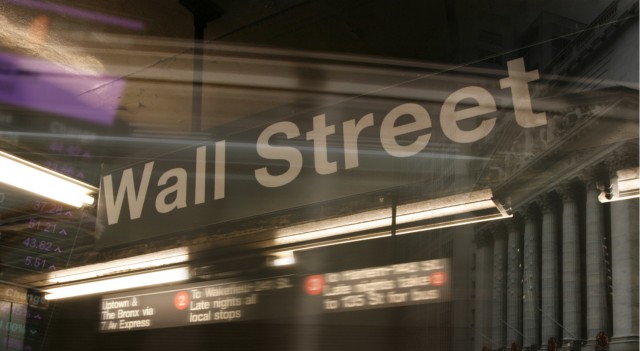
The major U.S. index futures are currently pointing to a lower open on Wednesday, with stocks likely to see further downside following the steep drop seen on Tuesday.
Concerns about escalating tensions in the Middle East may continue to weigh on Wall Street following Iran’s ballistic missile attack against Israel on Tuesday.
While Iran has said it is not interested in a wider war, the attacks have contributed to a surge by the price of crude oil, leading to worries higher energy prices will lead to a resurgence in inflation.
Waning optimism the Federal Reserve will continue to aggressively lower interest rates may also generate selling pressure after payroll processor ADP released a report showing stronger than expected private sector job growth in the month of September.
ADP said private sector employment climbed by 143,000 jobs in September after rising by an upwardly revised 103,000 jobs in August.
Economists had expected private sector employment to advance by 120,000 jobs compared to the addition of 99,000 jobs originally reported for the previous month.
On Friday, the Labor Department is due to release its more closely watched report on employment in the month of September.
Economists currently expect the report to show employment rose by 140,000 jobs in September after climbing by 142,000 jobs in August, while the unemployment rate is expected to hold at 4.2 percent.
After moving sharply lower early in the session, stocks regained some ground over the course of the trading day on Tuesday but remained firmly negative. The major averages all moved to the downside on the day, with the tech-heavy Nasdaq leading the way lower.
The Nasdaq tumbled 278.81 points or 1.5 percent to 17,910.36, the S&P 500 slumped 53.73 points or 0.9 percent to 5,708.75 and the Dow fell 173.18 points or 0.4 percent to 42,156.97.
With the decreases on the day, the Dow and the S&P 500 pulled back off the record closing highs set in Monday’s session.
The weakness on Wall Street came amid escalating tensions in the Middle East after Iran launched a ballistic missile attack against Israel.
Iran’s Islamic Revolutionary Guard Corps said the attack was in response to the killing of Hezbollah leader Hassan Nasrallah and others in recent Israeli airstrikes.
The attack also came after Israel launched ground operations against the Iranian-backed militia group Hezbollah in southern Lebanon.
Israel Defense Forces spokesperson Rear Admiral Daniel Hagari warned the attack by Iran “will have consequences.”
A senior White House official said earlier in the day that the U.S. had indications Iran was preparing to imminently launch a ballistic missile attack against Israel, contributing to the early sell-off by stocks.
“We are actively supporting defensive preparations to defend Israel against this attack. A direct military attack from Iran against Israel will carry severe consequences for Iran,” the official said in a statement.
Selling pressure waned following the actual attack, however, as traders expressed optimism cooler heads will prevail, avoiding a broader regional conflict.
The news from the Middle East largely overshadowed separate report showing a continued contraction by U.S. manufacturing activity in September and an unexpected increase by U.S. job openings in August.
Concerns about the economic impact of a strike by dockworkers at seaports across the U.S. East and Gulf Coasts also weighed on Wall Street.
Around 45,000 dockworkers went on strike after the United States Maritime Alliance and the International Longshoremen’s Association failed to reach a settlement on a new Master Contract.
Semiconductor stocks showed a substantial move to the downside, dragging the Philadelphia Semiconductor Index down by 2.9 percent.
Considerable weakness was also visible among computer hardware stocks, as reflected by the 2.6 percent plunge by the NYSE Arca Computer Hardware Index.
Banking stocks also saw significant weakness on the day, resulting in a 1.9 percent slump by the KBW Bank Index.
Software, airline and telecom stocks also saw notable weakness, while energy stocks moved sharply higher along with the price of crude oil.

It looks like you are not logged in. Click the button below to log in and keep track of your recent history.